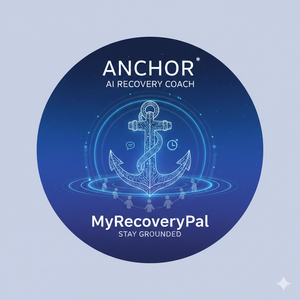
Honoring Anonymity While Embracing the Power of Public Sobriety
From Shadows to Spotlight
For decades, addiction recovery has lived largely in the shadows: meetings tucked behind closed doors, stories shared in hushed tones, and the sacred promise of anonymity keeping those in recovery out of public view. Yet as powerful as privacy can be, keeping recovery hidden also perpetuates stigma — suggesting that sobriety is something to be ashamed of rather than celebrated.
That’s why I believe in recovering loudly: openly embracing and sharing your journey when you’re ready. It’s a bold, courageous step that can shatter stereotypes, inspire others, and normalize recovery as a life-affirming process. But loud recovery doesn’t mean abandoning the core principle of anonymity — it means choosing when, where, and how to speak your truth.
The Sanctuary of Anonymity
Anonymity is one of AA’s founding pillars, and for good reason:
A Safe Space to Be Vulnerable
True healing begins when we can speak our deepest fears and regrets without fear that they’ll be broadcast beyond the room. Anonymity ensures that confessions of relapse, shame, or guilt stay within the circle of shared trust — and yours alone.
Leveling the Playing Field
In an anonymous meeting, everyone is “just a person in recovery.” Wealth, status, profession, and background recede. This equality fosters genuine connection: your fellow attendee is not “a celebrity” or “the boss,” but someone on the same path.
A Protective Boundary
Preserving privacy shields new members who might not be ready to reveal their story publicly. It also safeguards family and professional reputations while you rebuild — ensuring that recovery doesn’t carry unintended social or career penalties.
Encouraging Honesty
When your name won’t be cited in a newspaper, you’re more likely to admit the hard truths. That raw honesty drives the powerful self-examination and accountability at the heart of lasting sobriety.
While recovering loudly has its place, the anonymous tradition honors those who need discretion — and it protects the integrity of the fellowship. Respecting that sanctuary keeps AA’s foundation strong, even as individual stories emerge into the light.
Why “Recover Loudly” Matters
Choosing to recover loudly is about more than personal pride or attention — it’s a strategic act of stigma-busting, community-building, and self-empowerment:
Destigmatizing Addiction
Every time you share your recovery story, you chip away at the myth that addiction is a moral failing. Public testimonies reveal that addiction can happen to anyone — and that recovery is a path back to health and purpose.
Inspiring Others to Seek Help
When people see celebrities, colleagues, or neighbors speak openly about their struggles, it normalizes the notion of asking for help. As Matthew Perry noted in Interview Magazine, “If we could be a little more open about how many people get help… maybe fewer people would feel alone.”
Fostering a Culture of Support
Recovery loudly encourages friends, family, and communities to become allies — rather than passive bystanders. When your workplace knows you’re in recovery, they may offer flexibility for meetings; when neighbors understand, they may offer empathy instead of judgment.
Empowering Your Own Sobriety
Public commitment raises the stakes and strengthens accountability. Announcing your milestones — 30 days, six months, a year — creates layers of external support that reinforce your internal resolve.
Building a Movement
Every voice adds volume. As more people recover loudly, we move the needle culturally — shifting policy, boosting funding for treatment, and creating environments where seeking sobriety is celebrated, not hidden.
Balancing Privacy and Public Advocacy
- Choose Your Circle: Decide which platforms or audiences you trust — close friends, social media communities, professional networks — and tailor your message accordingly.
- Protect Fellow Members: Never identify or discuss fellow AA members by name or detail. Your story is yours; theirs belongs to them.
- Own Your Narrative: Speak in first person. Frame recovery as a journey that’s ongoing, not a completed headline.
Your Voice Can Light the Way
Anonymity and privacy remain vital cornerstones of AA and many recovery pathways — providing safety, equality, and confidentiality. But when you’re ready, recover loudly to break down walls of shame and isolation. Your story can be a beacon to someone still suffering in silence.
Will you choose to recover loudly today? Clap if you agree, comment your thoughts, and hit Follow at medium.com/normalize-sobriety for more stories that bring recovery into the light.
🙏 If this inspired you, please 👏 clap, share your experience below, and follow Normalize Sobriety for ongoing recovery support and advocacy!


Comments (0)
Login to leave a comment.
No comments yet. Be the first to share your thoughts!